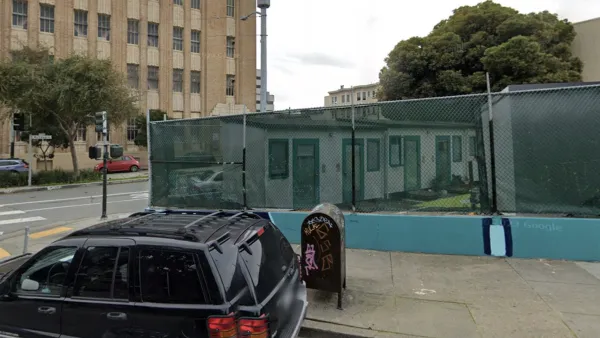It can often take months for unhoused residents to access supportive housing. When they do, conditions can be unbearable.

According to an SFist article by Joe Kukura, San Francisco has cut the vacancy rate in its single-room occupancy hotels (SROs), designed as supportive housing for formerly unhoused people, from 11.5 percent to 7.8 percent.
While poor building conditions are to blame for some vacancies—run-down units, vermin infestations, and high crime rates make some buildings unlivable—“the primary reason most of those units are sitting empty is paperwork — someone wants a unit, but the wheels of bureaucracy are still spinning to get them into it.”
An article in the San Francisco Chronicle adds, “In an investigative series called Broken Homes, the Chronicle found widespread disrepair and staffing shortages in many supportive-housing SROs, along with an alarming number of fatal drug overdoses. A lack of funding and oversight from HSH had allowed such problems to fester.” Now, the city is working to reduce wait times, make capital improvements, and bring the vacancy rate down further. The city’s Department of Homelessness and Supportive Housing (HSH) “recently embarked on a monthslong campaign to fill half of the 140 empty units in four of the most challenging buildings. The department is now trying to move people into other similarly underutilized properties,” with a goal of reducing vacancies to 7 percent or lower.
FULL STORY: SF Finally Getting Somewhat Better at Filling Long-Vacant Supportive Housing Units

Analysis: Cybertruck Fatality Rate Far Exceeds That of Ford Pinto
The Tesla Cybertruck was recalled seven times last year.

National Parks Layoffs Will Cause Communities to Lose Billions
Thousands of essential park workers were laid off this week, just before the busy spring break season.

Retro-silient?: America’s First “Eco-burb,” The Woodlands Turns 50
A master-planned community north of Houston offers lessons on green infrastructure and resilient design, but falls short of its founder’s lofty affordability and walkability goals.

Test News Post 1
This is a summary

Analysis: Cybertruck Fatality Rate Far Exceeds That of Ford Pinto
The Tesla Cybertruck was recalled seven times last year.

Test News Headline 46
Test for the image on the front page.
Urban Design for Planners 1: Software Tools
This six-course series explores essential urban design concepts using open source software and equips planners with the tools they need to participate fully in the urban design process.
Planning for Universal Design
Learn the tools for implementing Universal Design in planning regulations.
EMC Planning Group, Inc.
Planetizen
Planetizen
Mpact (formerly Rail~Volution)
Great Falls Development Authority, Inc.
HUDs Office of Policy Development and Research
NYU Wagner Graduate School of Public Service




























